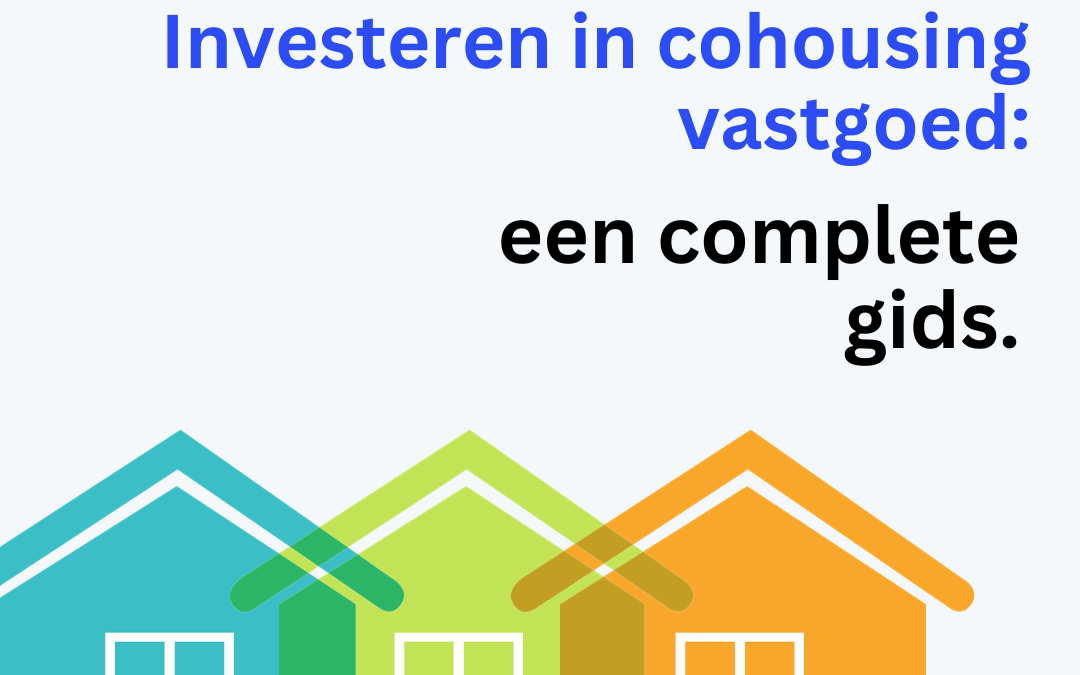Cohousing is a unique real estate segment that emphasises community, sustainability and shared living. As a real estate specialist, it is essential to understand the nuances of cohousing design, which not only affect the quality of life of residents, but also the attractiveness and return on your investment. Immotokens, as a property investment specialist, offers insights and opportunities on its online platform for investors interested in this emerging segment.
The Basics of Cohousing Design
Creating Functional Common Spaces
The heart of any cohousing community lies in its communal spaces. These spaces should be flexible, multifunctional and accessible to all residents. They are designed to promote social interaction and community building, from communal dining areas to children's play areas and shared workplaces.
Concrete Example:
Imagine a cohousing project with a central courtyard that serves as a meeting place, play area, and communal garden. This multifunctional space encourages residents to come together, form relationships, and collaborate on common projects.
Privacy and Personal Space
The Importance of Well-Designed Private Units
While communal spaces are central to cohousing, privacy is also essential. The design of private units should be smart and efficient, with sufficient storage space and flexible layouts adaptable to different lifestyles.
Concrete Example:
A cohousing unit can be designed with sliding walls or convertible furniture, allowing residents to customise the space as needed - from an open plan during the day to separate bedrooms at night.
Sustainability at the Heart of Design
Energy efficiency and environmental awareness
Sustainability is a core principle in cohousing projects. Design elements such as passive solar energy, rainwater harvesting systems and green roofs are not only environmentally friendly, but can also reduce operational costs for residents.
Concrete Example:
A cohousing development can integrate solar panels and geothermal heating systems to reduce reliance on fossil fuels and achieve long-term energy cost savings.
Flexibility and adaptability
Designing for Changing Needs
Life changes, and cohousing designs need to be flexible enough to adapt to the evolving needs of its occupants. This may mean that spaces should be able to transform from children's play areas to work spaces, or that private units can be expanded to accommodate growing families.
Concrete Example:
A cohousing project can include modular design elements, such as removable walls or expandable spaces, allowing residents to reconfigure their living space as their needs change.
Accessibility and Inclusiveness
Designs for All Ages and Capacities
Cohousing communities are often multigenerational, which means accessibility and inclusiveness are crucial. Designs should consider people of all ages and abilities, from safe play areas for children to barrier-free entrances for the elderly or people with disabilities.
Concrete Example:
A cohousing development can include features such as ramps, lifts, and handrails in common areas, as well as flexible layout options in private units to make them more accessible.
Immotokens: Your Guide in Cohousing Investments
As a property investment specialist, Immotokens offers a platform where investors can find the tools and guidance they need for their cohousing projects. Our team of experts can help you navigate the complexities of cohousing design, from sustainability initiatives to flexible subdivision strategies.
By working with Immotokens, you can be confident that your cohousing investments are well thought out and future-proofed. Visit our platform to learn more about the opportunities within cohousing and start realising your vision today.
Conclusion
Effective cohousing design requires a balance between communal interaction and private space, a strong emphasis on sustainability, flexibility to adapt to changing needs, and accessibility for a diverse group of residents. By embracing these principles and integrating them into your investment strategies, you can create cohousing projects that are not only financially viable but also have a positive impact on the community and the environment. With Immotokens as your partner in cohousing investments, you are well positioned to succeed in this dynamic and rewarding real estate segment.



